WHAT WE DO
Our mission is plain and simple: Barnstable Clean Water Coalition (BCWC) works to restore and preserve clean water in Barnstable.
BCWC deploys science as its foundation to monitor, educate, advocate and mitigate for clean water throughout the Cape Cod town of Barnstable.
Since 1996, our work has taken us beneath the water, above it, and on land, allowing for a thorough, year-round study of the watershed that encompasses West, North and Cotuit Bays and related ecosystems throughout its 12,458 acres.
Beginning in June 2017, Barnstable Clean Water Coalition went town-wide, with a target mission area of 75-plus square miles.
EDUCATE
Barnstable Clean Water Coalition (BCWC) believes education to be one of the pillars of successful community-based conservation. Regardless of age, BCWC aims to promote a culture of science literacy surrounding local environmental issues. The framework of our educational efforts strives to establish the direct correlation of the human action and associated environmental impact. We focus our educational goals towards classroom settings, community events, interacting and engaging the public while out doing field work, and promoting fundraising events to further the mission of BCWC.
During the academic year BCWC has hosted student interns from Barnstable High School to conduct weekly pond sampling.
BCWC has been an active participant in the town of Barnstable’s Department of Natural Resources (DNR) Headstart Program for diamondback terrapins since 2017.
BCWC and the community have done a great job in their efforts to protect the threatened and endangered birds that nest on Dead Neck Sampson's Island (DNSI).
For over 20 years, we have tracked water quality in marine embayments, as well as keeping a close eye on freshwater systems including ponds, streams, rivers and coves. By monitoring, we can then measure the quality of these water systems through comprehensive parameters and proven scientific methods that provide both qualitative and quantitative data. These data are shared with other science-based organizations, and provide the BCWC with a baseline to determine progress.
Measuring water quality through comprehensive, proven scientific methods provides data targeted for a strong and sustained ecological impact.
BCWC is monitoring the streamflow and nitrogen levels to determine how much nitrogen is flowing through the Marstons Mills River and into the Three Bays estuary.
BCWC has been monitoring the Marstons Mills River Herring Run and collecting data that estimates how many herring make it to Mill and Middle Ponds.
BCWC is an active participant in the Cape Cod Commission’s Cape Cod Pond and Lake Stewardship (PALS) program. BCWC monitors 31 ponds and lakes in Barnstable.
BCWC has worked with UMass Dartmouth’s School for Marine Science and Technology (SMAST) for 15 years collecting water quality data.
BCWC has been an active member of the Massachusetts Office of Coastal Zone Management’s (CZM) Marine Invader Monitoring and Information Collaborative (MIMIC).
BCWC is partnering with Popponesset Water Stewardship Alliance in order to monitor the spread of a new species of red algae called Dasysiphonia japonica (D. japonica).
BCWC has been collecting water quality data at the Marstons Mills cranberry bogs, which is a collection area for the groundwater from much of the surrounding homes.
Our small but intrepid team of engineers, scientists, seasonal help and interns implement and test innovative technologies including alternative septic systems, permeable reactive barriers, and nature-based treatment systems. We support municipal treatment projects. By utilizing solution-based initiatives in our mitigation program, we help combat excess nitrogen by using innovative technologies to clean the water.
Solutions-both traditional and new-to cleaning impaired waters in ponds, rivers and embayments exist through the diverse Massachusetts 208 Plan, named for Section 208 of the federal Clean Water Act. These technologies include aquaculture, which uses oysters to filter and purify water naturally, and Permeable Reactive Barriers (PRBs), which are underground walls that filter impurities from groundwater to combat nitrogen pollution. These are just a few of the innovative methods in which Barnstable Clean Water Coalition is engaged.
In partnership with the Massachusetts Oyster Project (MOP) and the Town of Barnstable, BCWC built and installed an oyster upweller tank at Gateway Marina on Hyannis Harbor during the summer of 2018.
BCWC is working to restore 55 acres of cranberry bogs to natural freshwater wetlands which will reduce nitrogen flow downriver and improve water quality as well as restore habitat.
BCWC is working to reduce nitrogen flow downriver by tackling it at its source. We have a pilot project working to install I/A septic systems. Here is more information about the pilot project.
BCWC is working to reduce nitrogen flow downriver by tackling it at its source. We have a pilot project working to install I/A septic systems. Here is more information about those systems.
Dead Neck Sampson’s Island (DNSI) is a barrier island south of Grand Island in Osterville that is co-owned and managed by BCWC and Mass Audubon. Dredging was completed in 2021.
We believe an informed electorate represents our best collective opportunity for consensus on water quality, and restoring and preserving our priceless water supply for drinking, and for swimmers, boaters, fishing enthusiasts and other outdoor recreational users. As issues warrant and crises develop, we will advocate for regulatory changes to address water quality issues of relevance in the Town of Barnstable.
Because we all have a responsibility to preserve our watershed, we will be the strongest voice for clean water while identifying issues affecting clean water.
Named for Section 208 of the federal Clean Water Act, Cape Cod’s Water Quality Management Plan or the 208 Plan, is designed to address the problems of excess nitrogen, the key reason why water quality is degrading in our local waters.
The Cape Cod Commission has been a key partner in our mission to conserve the Three Bays watershed. In March 2015, the Commission released a report about property values that could be compromised by poor water quality.


















